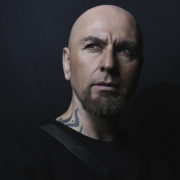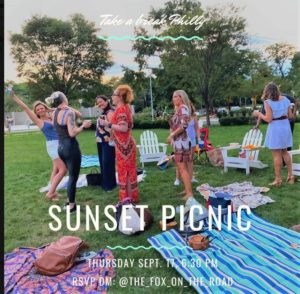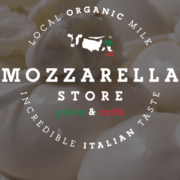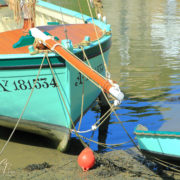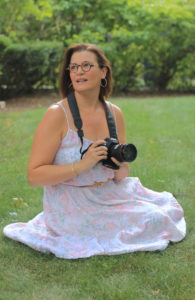Demir Demirkan “Brings It On” with his music – Part 2
We had the pleasure to chat with Demir Demirkan, a 25+ year veteran Turkish singer-songwriter/guitarist.
Beginning at age 19, Demir Demirkan has produced and released close to 50 solo and collaborative albums and singles ranging from blues, rock, metal to film and TV series soundtracks composed for symphony orchestras, choirs and Anatolian instruments.
His life and career has been a journey igniting from Turkey, through Europe and to Austin, Texas – USA where he now resides with his wife and son.
His latest works reveal that he is back into where his roots are, Metal.
While building his career from ground up in Istanbul, he recorded and performed with Turkish musicians and bands mainly as a member of the Turkish Heavy Metal band The Pentagram a.k.a. Mezarkabul. Internationally, he recorded and performed with world-renowned names like Mike Stern, Al Di Meola, Dave Weckl, Trilok Gurtu, Omar Hakim and Phil Galdston to name a few. However, you likely now him best for the only Turkish song that won Eurovision Song Contest, Demir composed that song for his girlfriend at the time, Sertab Erener. Sertab Erener is a pop singer whose first album sold over 1 Million copies.
This interview is PART II. Part I was published a few weeks ago. Read more
Demir, can you tell us what brought you to professional musician/composer/producer career path?
I started playing at 12 and my first band was in high school when I was about 17 years old.
I was learning how to write songs and arrange them to the band and write lyrics and play guitar because I started with the acoustic guitar, and then I switched to the electric guitar.
I was going to come to the United States and study business. That didn’t happen because when I applied for that visa, I was denied.
I had to stay in Turkey and study something else. I could speak English. I was really good at writing stuff like songs and stuff like that – the literature. I had a chance to attend a college in Ankara to study English literature and humanities, so that’s what I did.
I met a lot of other musicians there and there was a conservatory. I made friends, formed different bands. I met my bass player friend from the band Pentagram, the first professional metal band ever recorded in Turkey. We still go on by the way.
In an odd way that visa setback turned me on to making professional music. I realized it is s possible to make a living in music IF you’re good. I wanted to be better – non-stop. I would practice eight or nine hours every day. Every day. I got better and better. Finally, I told my father that, “Okay, I’m going to be a professional musician.” The problem was that my older brother said the same before me.
Oh no, how did that go…what happened to your brother.
He came to the United States to study in conservatory. He dropped out after two years. He kind of got lost. He has perfect pitch. My father thought if your brother wasn’t able to do this, you’re never going to make it because you don’t have his talent, right?
I’m like, “Well, this is what’s going to happen.” They supported me as they sensed that whatever they say I’m just going to take my way. That’s how I came to Los Angeles.
I attended a school called Musicians Institute in Hollywood Guitar Institute of Technology, GIT was the department. A pretty good education. I stayed in Los Angeles for four years and that’s how my whole professional story began.
Right before I came to Los Angeles, we recorded an album with that heavy metal band that I was talking to you about – the Turkish metal band, PENTAGRAM . We never thought it was going to be released. I landed in LA and after a month or so, I heard the news that somebody is releasing that album in Turkey. That’s a first. It was year 1992 and the band got to be a huge hit, obviously, in the metal circles.
After four years in LA I went back to Turkey in 1996. I went into production because I learned so much in LA as a musician.
I learned how to become a producer, a songwriter, a shredder guitar player, like really fast and flashy and I learned a bunch of other music. I played with African bands in LA, I’ve played with jazz musicians, I’ve played with metal musicians, I’ve played with rock musicians, whatever. I produced different singer-songwriter material.
With all that knowledge and know-how I came to Turkey. It took me a few months to rise up to the top and become a hit. A hit producer, a hit guitar player, a hit songwriter, and then things started picking up so fast.
I had never seen that much money in my life first of all. It was crazy. I always thought that the more attention I got, the more responsibility it laid on me. I had to be better and better. I wasn’t sleeping for three days for production. I would get sick at the end of it, but it all paid off in the end, right?
It was kind of like a race within myself. The more good work you put out there, the more you have to work to be better. If you produce a few hits, and write a few hit songs, and then write a few bad songs, you’ll be the flavor of the month and then disappear. If you want to be in that light all the time, you just have to do better and better and that takes its toll.
The hair was gone, long nights, endless days, a lot of partying, I have to include that. In the end, you build a foundation that cannot be shaken. You’re a part of the culture and you win Eurovision Song Contest. The only win (for Turkey), and you’re one of the most popular heavy metal bands, flashy guitar player. You have your hits that you sing. You have your film music. TV series music and all that so this whole chunk of work actually is embedded in the whole musical culture of Turkey, which is a good pay off for all that work that I’ve done, without all that sleep, you know.
So what drove you? Gary is as eclectic and as crazy as you are. He is always sort of “I don’t care. I’m just going to keep going until I make it happen.”
I never thought about that. Maybe it’s good that I never thought about it because if I had thought about it, I would just break the spell.
I think it was a very magical run. If I see magic somewhere, I don’t really ask questions about it because if you do the science of how that magic happens, I think it will ruin it. I didn’t really poke into some of the things that I thought were magical. Love being one of them. I learned this in my whole meditation circles.
The drive. I don’t know, maybe it’s a character. I’m the fifth sibling of a huge family, maybe I just wanted to stand out. Maybe it was too much responsibility. Once you do a good thing, you have to be better. Maybe I like the attention or the money or it could be anything. I don’t really look into it. I just did it. I didn’t really think about it.
There were things that I thought about and analyzed, and they failed really badly. If I put thought into something then, like a purpose, a target, an intention, like a preconceived result, to start one thing, and put that preconceived target, or aim or result, as the fuel of the work, I always failed, I have to admit.
There are some projects that I left unfinished. There’s been projects that came up and finally ended into something which sucked and a lot of things like that. I learned not to follow results that my mind produced, if I’m making sense. If I look at the market and say, “Okay, if I do this and that, and after three years, I could be at that point.”
See, this is really a studied guess and it might work in business, but in art, or arts-related businesses, I think it ruins the artists and the creativity. It did in my case, and I lost a lot of motivation. There were times when I took breaks. I didn’t know what to say to my audience or what kind of music to put out. I was still practicing playing, practicing in my room, in my studio. I didn’t want to write or release anything because I was kind of lost because of those preconceived works that I tried to do in that period.
I learned not to do that because that’s also kind of like ruining that magic. If you are authentic and find the spot in the audience, you don’t touch it, you don’t mess with it. You can’t find the person that you’re going to fall in love with and get married and have children with and make and build a family with. You cannot look for that person, that person will come to your life. If you go on dating sites and all that and start doing the dating circle or whatever, or find the person to have kids with, it won’t work. I mean, this is just too much mind. You have to let go and your subconscious or your soul or your spirit or your heart will find its way. It’s just like that in music too. Those kind of projects were successful.
What motivated you to write the winning Eurovision song for that singer in Turkey?
The singer was my ex-girlfriend Sertab Erener. I wrote and produced her records for years as we were together for 18 years. We did some really, really serious hit work.
Wow, 18 years is a long time.
it’s kind of like half of my life. I wasn’t going to write that song. I hate the idea of music being in a competition. I told her, “If you attend, don’t ask me to write any material because I don’t like my songs to go into competition.” The market is a competition in itself but deliberately writing a song to win something is a different story, right? And Turkey’s Eurovision history is not that bright.
Sertab was a huge pop star. So if she lost, if she came even second, that would have been a really bad thing for her career. if I backed out of it and the song didn’t win, I would feel responsible for my girlfriend. Finally, I wrote two songs. One of them was a ballad, and the other one was– You know, they liked the ballad, but she said, “Why don’t we write something that’s really, really easily graspable so people can relate to it. We can make it as Turkish as possible, as easy as possible and then we’ll take it from there. So that figure actually – [mimics music] – that figure is a phrase in a very traditional Turkish anonymous phrase. You can make any song with it.
I made that the first part of the song and then kind of went into the blues territory by going to the fourth degree. And then I wrote a big chorus to it. It worked out. At that time Destiny’s Child and Beyoncé and all that, they were really hot, and I said, “Why don’t we do this with a three-part harmony?” We did that and then I gave it to some other producer to produce the record and then it went to France and a duo named Galleon, they did the remix and the version of it that won the Eurovision Song Contest was the remix of it. So yeah, they went there and did the whole dancing choreography and all that. They did their publicity, and that was the only win of Turkey in Eurovision history, 2003.
So how long were you with your girlfriend after she won?
Oh, until 2015 or 14 and something. So yeah, many years after that. I was 31 and she was 39
Did you feel at that point that in Turkey, that was a height of your popularity or did that success open up new horizons for you?
I quit music right after that for about six months to a year. I didn’t know what to do with the idea of being a name in popular music. I am more from a rock and metal background. I was doing the pop productions, songwriting stuff, hit producing because I was with my ex. She was a pop star.
I was financially doing really good too. I was doing the solo rock / metal stuff on the side but producing a lot of records in pop and writing love songs in the pop genre. And, having won the Eurovision and all that, it kind of places you in the mainstream pop genre. I didn’t know what to do with that. And all my friends were like, “All right, man, it’s time to come out with a new record. You’re hot, just go out there.” I moved out of Istanbul and moved to Bodrum and started living there and just forgot about music for a while and it was a great time. I partied really hard there.
Finally, my manager at the time says, “Okay, well, why don’t we do a record?” I said, “Look, if I want to make a record, I’m going to release it from my own company because I don’t want a record company person coming to me and asking me to make it ‘poppy-er’ or whatever because that’s the story of my life.” Somebody from the company just walks into the studio and says, “Hey, these are really great, but can you make it a lot more ‘poppy-er’?” and all this shit. We formed our company, and then we released that record through that company. I was very happy about it.Those songs are still hits. It’s actually proof that I know what my audience wants. They want what I like. I don’t want any record company person coming in and asking me to change the material to what they think my audience will like even better.
I continued with my career the way I wanted. I still release my songs through my own company.
So would you say the majority of what you released from then was more metal rock or did you mix it up and make it eclectic? I noticed you move from different moods, from ballads to rock to metal. Does your music reflect different phases of your life.
I just wanted to make that album in the style of what I was feeling at that time. If I wanted to put a single out, I would just sit down and write something. I had the freedom to freely express what I was going through at that time of writing that song, or that full-length album. That’s why there’s kind of like stylistic differences among all of them. If I was looking from a business point of view, I wouldn’t do that. On my own material, I was looking from an artist’s point of view. Because if I looked at it from a business point of view, I would have to continue with that album that I released right after Eurovision – the 2004 album. Why? That was my best-appreciated album, right.
I mean, you don’t change things, you just go with that and you just cash in on it, right? That’s the business sense. But no, I didn’t want to do that. I waited. In 2007 I was meditating a lot. I went to a bunch of places in Asia – Japan, China, and Thailand, and all those places. I’ve met a lot of meditation and Qigong masters. I came up with that album in 2007, which was a concept album [for] which everyone thought I was crazy. Because, you know, like instrumentals and all songs are connected and all that like cross-fades and all that kind of stuff. It’s different, like totally way out there. If you want to listen to it, it’s on Spotify. It’s the one with the hand that’s sticking out and then the guitar’s head is coming out of my hand and it’s a white cover. (The albums name is “Ates Yagmurunda Cirilciplak” if you’d want to put it in here) For each album or for each single, I just did what I felt like doing and people seem to like it too. I mean, not all of them are hits or anything like that. Listen, if I want to go for a hit, I’ll produce a hit. That was my day job kind of, but I didn’t want this to be a job, you know? That’s the bottom line.
You got this artistic restlessness . “All right. I’m restless. I don’t want to be pigeonholed in this. I’m going to go over here.”
Exactly. Your niche market, whatever, directs you if you listen to what people like and which is your most listened song. You can follow that too. I have a problem with authority. That kind of feels like another authority to me. I am the producer. I’m the creator here – it’s coming out of me. I’m living this life, and music comes up and lyrics come up. So let me do this thing, and listen to it if you like it. Don’t listen to it if you don’t like it, it’s just that simple. Everything that you release, or you produce, or you just create and put out there, will have an audience if it’s good, you know what I mean? So my criteria is about the song being good and true rather than being correct, right. ?
A lot of the places in Austin don’t like to pay any musician unless it’s a ticketed concert, but then you have to have some kind of a name that people are willing to pay.
Nobody is going to pay you if you’re not a well-known name. You just have to sell your own tickets. And I am the same way in the United States.
I’m not like how I am in Turkey. Obviously, my manager sells the shows there, but here, you can’t do that. Nobody knows you, maybe some Turkish people around, but it’s not a big crowd. Like if I booked or like if I wanted to play in Antone’s or something, it’s just whatever comes from the door. It’s not like, “Hey, I want this much money.” That’s not going to happen. Yeah, I mean, if you prove that you’re drawing in at least 300, 400 people every night, okay, then you can kind of like say, “Okay, why don’t we do this, then? We can switch into the payment system.” But I don’t think that’s the case now. I’d like it to be the case, but it’s not. And still, there are no venues. Who knows when Antone’s is going to open? And who’s going to be playing the first show there? How is that going to be? Will people attend? Will they attend with their masks? Will they be social distancing? So 25% of the audience that you usually draw… So if you draw in 200 people, 25% was 50. Is that going to be enough to pay your band musicians? Is that going to be enough for gas? Is that going to be enough for your rentals, for the sound guy, whatever? Obviously not, it won’t happen. So I mean, the music industry got a huge hit out of this, man. I mean, I don’t know what’s going to happen next.
The record industry, no problem. Everybody makes their record in the studios and all that, they put it on Spotify, but the streaming pays, you know what it pays, it’s basically nothing. And if you don’t own your company, and you give your song to the record label, obviously, they take their cut, and the cut that you get out of that point zero one cents or whatever every dollar that you get from one stream is divided into your percentage. So, forget that. That’s not going to save you. Putting records out there for streaming or YouTube videos and all that, it’s not going to save you. You have to make yourself a name even in your niche market. But how are you going to do that without playing live? Can you just do it online on social media? Look, all these people, they’re over 35, 40 years old, and they’re not really that social media savvy so they don’t go around with TikTok open on their phones and doing all that stuff and interacting with their fans. They are people like you and me, man. We’re not going to be like some teenager who’s like a YouTube phenomenon, having like hundreds of thousands of subscribers and actually, different companies are rolling in the money to have their advertising, whatever products on their videos, anything like that. No, I’m talking about regular musicians who live in Austin and go play out there and make a few hundred dollars and then come back to their home and do that over and over in a month, and then be able to take care of their families and then pay their rent and do that again next month. So I don’t know what’s going to happen to that. I mean, that industry, that’s gone. I don’t think it’s ever going to come back because all those people, they quit being musicians. That’s it. How are they going to come back? They have already started looking for jobs. You don’t just form a band just like in a day or anything like that. It takes months and to get your band well-known, it takes years of hard work and playing around and a lot of sacrifices. And all that thing that you build up, can go just like that with a virus.
What would you tell other people who would like to be professional musicians?
Making music is very easy these days. You don’t need studios. We weren’t able to make music because studios were really expensive at the time when I was coming up, but right now everybody can [make] music in their room. I’m talking about world standard recordings if they know what they’re doing. The studio doesn’t matter anymore. Not that much if you’re not a huge band or anything like that not recording like a violin section or something. But it’s just that making music is free, you can write all you want, you can record all you want in your bedroom, and you can be all that good. It’s just putting it out there in that noise cloud and being able to get the attention of some people and build up on that. And that is the hard part. This is marketing territory. It’s not artistry or it’s not musicianship or anything like that. It’s just cold business, so they have to be all of it. In the old times, you just had to be the musician. You just had to create and create and so you would have some other people doing the work for you. So your record would be out and then it could be distributed and all that kind of stuff and marketing and all. But now, especially if you’re starting out, you have to do everything. No manager will pick you up, no agent will pick you up, no record company will pick you up unless you prove that you have some kind of a following and you’re actually promising like 20% or anything that you will make it and you will continue making this.
So you’re on your own basically, it just depends on how much you love this. If you don’t love this 100%, I would recommend [finding] something that you actually love 100% because that’s the only fuel that you’re ever going to get. Your dreams of becoming famous and rich and all that, that won’t fuel it, man. Two years down the road, five years down the road, just working, working, working, and burning out and all that, you are just going to fail, you’re just going to drop out. You’ll be pretty much burnt out if your fuel, if your driving force, your motivation is fame and fortune, but if you really love doing it, you will go like, “Fuck it. I’ll just do this even if I die. I don’t give a shit if nobody listens to me. This is what I do, this is what I am”, that guy is going to make it. He will. Trust me, he will.
I guess that’s why they have started all these competitions that people actually get a platform but whether it’s going to help them, that’s a different story. Because if you look at a lot of the contests, whether it’s American Idol or The Voice or whatever, very few of those even the winners have really made it because you can be really good, you can be everything but if you don’t have good music, what’s going to happen to you?
Yeah, look and the other guy who believes in himself 100%, believes in making music and loves his music. Even if he is shitty, even if the song is just a jingle or something like that, he will make it. He’ll build up on it because that’s what he does. And he’s like, 100% content with it and it’s fine. It’s just he is what he is, and he knows what he’s not. So he’s just going to keep doing that and he will get an audience and he will make it. But if you’re thinking about, like, “I want to be a musician because I want to be just like that guy. Free, reckless with all that attitude, famous, with all the girls and the parties and the money and the jets and all that”, you’ll lose. That’s not it. You can’t go with that. It won’t work. That’s what I’m trying to say. So find a good reason to get into the music industry. That is not a good reason. That’s a really bad reason actually. That’s like the worst reason.
Thank You, DEMIR!! This was a really cool way to learn about your music, life and thoughts.
AUSTIN MUSICIAN MEMBERS!
Please connect with DEMIR – either via EuroCircle website, his website or through our EuroCircle Austin facebook group.
His website: Demir Demirkan
YouTube: Demir at YouTube

